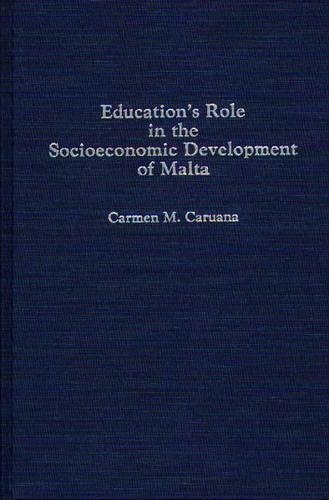
Education's Role in the Socioeconomic Development of Malta
(Hardback)
Publishing Details
Education's Role in the Socioeconomic Development of Malta
By (Author) Carmen M. Caruana
Bloomsbury Publishing PLC
Praeger Publishers Inc
26th October 1992
United States
Classifications
Tertiary Education
Non Fiction
Political economy
370.9458
Physical Properties
Hardback
144
Description
The island of Malta, a nonaligned power, received full independence from Great Britain in 1964. Malta's consequent classification as a developing nation compelled its government to initiate many changes in its political, social and economic ideologies. Central to its efforts for redevelopment was a stronger emphasis on expansion of its international educational environment, which included vocational, technical and academic training. The island has continued to prepare and maintain itself to accommodate the emerging multinational business community, recognizing the importance and impact it would have on the country's future. In post-secondary education, emphasis was placed on career-oriented (work-study) programs, and included the mastery of four foreign languages. In its search for economic, social and political stability, Malta's destiny was strongly influenced by situational factors - societal, cultural, religious, foreign and political. Viewing Malta as a case study, this volume sheds light on the functioning of an educational system in a developing nation, arguing that improving a nation's investment in education is a natural tool for economic development. It also provides information on approaches and techniques other countries use to resolve their educational problems and adds to the knowledge of international and business education.
Author Bio
CARMEN M. CARUANA is Associate Professor of Business Administration and Economics at St. John's University in New York.
